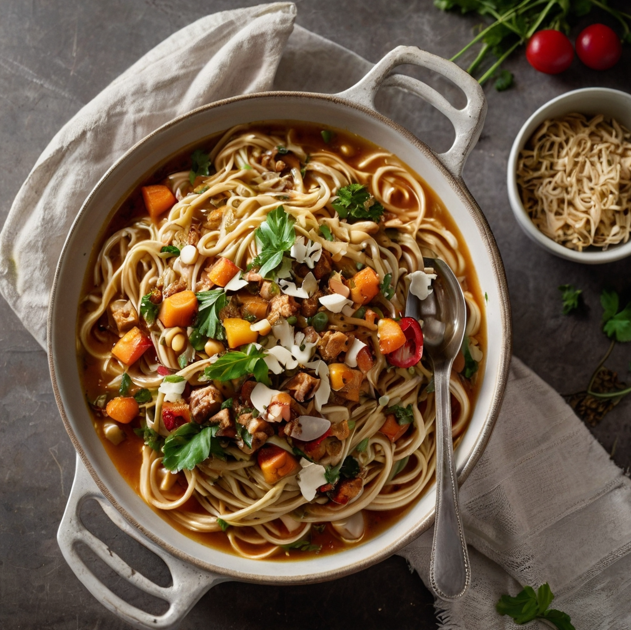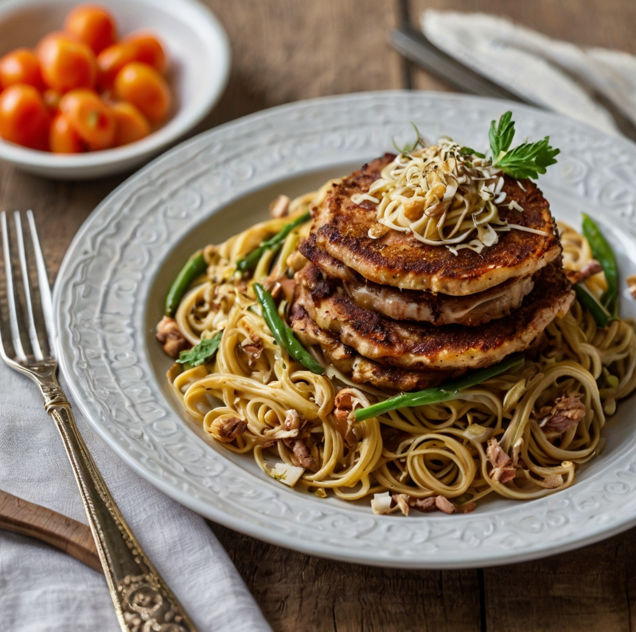Introduction to Bariatric Recipes
What Are Bariatric Recipes?
Bariatric recipes are specially designed meal plans and food preparations tailored for individuals who have undergone bariatric surgery, such as gastric bypass, sleeve gastrectomy, or adjustable gastric banding. These recipes focus on delivering high nutritional value while adhering to the unique dietary restrictions and requirements post-surgery. With smaller portion sizes and a focus on nutrient-dense ingredients, bariatric recipes ensure that patients receive essential vitamins, minerals, and proteins to support their recovery and long-term health.
These recipes also take into account the altered digestive system of bariatric patients, emphasising easy-to-digest foods, controlled calorie intake, and low sugar and fat content. They can range from protein-packed breakfasts to light and nourishing dinners, making the journey towards a healthier lifestyle more enjoyable and sustainable.
The Importance of Proper Nutrition After Bariatric Surgery
Proper nutrition following bariatric surgery is crucial for achieving and maintaining the desired health outcomes. The surgery significantly reduces the stomach’s capacity, which limits the amount of food a patient can consume. This makes every meal an opportunity to provide the body with essential nutrients.
Adhering to a well-structured post-operative diet helps to:
- Promote Healing: Nutrient-rich foods support tissue repair and recovery after surgery.
- Prevent Nutritional Deficiencies: As the ability to absorb certain vitamins and minerals diminishes, a balanced diet can help mitigate the risk of deficiencies in nutrients such as vitamin B12, iron, calcium, and vitamin D.
- Support Weight Loss Goals: Proper nutrition ensures that weight loss progresses steadily while preserving muscle mass.
- Enhance Energy Levels: A well-designed diet combats fatigue and boosts energy for daily activities.
- Avoid Complications: Maintaining proper dietary practices reduces the risk of side effects, such as dumping syndrome or dehydration.
Key Nutritional Considerations for Bariatric Patients
Bariatric patients must follow specific nutritional guidelines to optimise their recovery and overall well-being. These considerations include:
- Protein Intake: Protein is vital for maintaining muscle mass, promoting satiety, and aiding in recovery. Patients should aim to consume protein-rich foods like lean meats, fish, eggs, and plant-based options such as tofu or lentils.
- Hydration: Drinking enough fluids, ideally water, is essential to prevent dehydration. However, patients should avoid drinking with meals to optimise digestion.
- Vitamins and Supplements: Due to reduced food intake and absorption, bariatric patients often require lifelong supplementation of vitamins and minerals, such as multivitamins, calcium citrate, and vitamin B12.
- Small, Frequent Meals: Eating smaller portions more frequently helps to manage hunger and avoid overloading the stomach.
- Avoidance of High-Sugar and High-Fat Foods: Foods high in sugar or fat can lead to complications like dumping syndrome and interfere with weight loss goals.
- Chewing Thoroughly and Eating Slowly: These habits help ease digestion and prevent discomfort.
By following these principles and incorporating bariatric recipes into their routine, patients can enjoy delicious meals that support their journey to better health while adhering to their dietary needs.
Bariatric Lunch Ideas

Grilled Chicken Salad with Light Dressing
A simple and satisfying choice, grilled chicken salad combines lean protein with fresh vegetables for a nutrient-packed lunch. Start with a base of leafy greens such as spinach or kale, and add grilled chicken breast, cherry tomatoes, cucumber slices, and a sprinkle of shredded carrots. Use a light dressing like a lemon vinaigrette or a low-fat yoghurt-based option to keep calories in check. This dish is high in protein and fibre, supporting satiety and digestive health. Try pairing this with other light and nutritious recipes like the beef stir-fry recipe, which is also low in calories and rich in protein.
Turkey Roll-Ups with Cream Cheese and Vegetables
Turkey roll-ups are a quick, no-cook lunch idea that’s perfect for bariatric patients. Spread a thin layer of low-fat cream cheese over a slice of lean turkey breast. Add thinly sliced vegetables like bell peppers, cucumbers, and carrots, then roll them up tightly. Secure with toothpicks if necessary. These roll-ups are low-carb, high-protein, and packed with crunch and flavour, making them a perfect midday meal.
Lentil and Vegetable Soup
Lentil and vegetable soup is a hearty, nutritious option that’s easy to prepare in advance. Combine cooked lentils with diced vegetables like celery, carrots, zucchini, and tomatoes in a low-sodium vegetable broth. Season with herbs like thyme, parsley, and a pinch of paprika for added flavour. Lentils provide a great source of plant-based protein and fibre, making this soup filling and beneficial for digestive health.
Bariatric Dinner Recipes
Baked Salmon with Steamed Broccoli
Baked salmon is an excellent choice for dinner, offering a rich source of omega-3 fatty acids and high-quality protein. Season a salmon fillet with lemon juice, garlic, and a touch of dill, then bake until flaky. Pair it with steamed broccoli, which provides fibre, vitamin C, and other essential nutrients, to create a balanced and satisfying meal. Complement it with tips from the ultimate guide to beans and greens recipe for more fibre-rich options.
Chicken Stir-Fry with Cauliflower Rice
This bariatric-friendly stir-fry is a low-carb, nutrient-dense dinner option. Sauté diced chicken breast in a small amount of olive oil, and then add a mix of colourful vegetables such as bell peppers, snap peas, and courgettes. Season with low-sodium soy sauce or tamari for flavour. Serve over cauliflower rice, a low-calorie alternative to traditional rice that’s packed with fibre and vitamins.
Lean Turkey Meatballs with Zucchini Noodles
Lean turkey meatballs are a delicious and healthy choice for bariatric patients. Prepare the meatballs using minced turkey, a bit of grated onion, and seasoning such as oregano and garlic. Bake until golden brown. Serve with zucchini noodles (zoodles) sautéed in olive oil and a light marinara sauce. This meal is high in protein, low in carbohydrates, and full of flavour, making it a perfect dinner option for maintaining a balanced diet.
Bariatric Snack Options
Cottage Cheese with Pineapple Chunks
Cottage cheese with pineapple chunks is a refreshing and protein-rich snack that’s easy to prepare. Opt for low-fat or fat-free cottage cheese and pair it with small pieces of fresh pineapple for natural sweetness and a vitamin C boost. This combination provides a satisfying blend of creamy and tangy flavours, making it a perfect snack to keep hunger at bay while supporting post-surgery nutritional needs. For a sweet yet low-calorie snack, explore fruit-based options like those mentioned in the delicious apple breakfast recipes.
Hummus with Cucumber and Carrot Sticks
Hummus paired with fresh cucumber and carrot sticks is a nutritious, bariatric-friendly snack that’s both light and filling. Hummus, made from chickpeas, offers plant-based protein and fibre, while the vegetables add crunch and essential vitamins. Use a small portion of hummus to control calorie intake and enjoy a balanced snack perfect for any time of day.
Protein Balls with Oats and Peanut Butter
Protein balls are a convenient, homemade snack option for bariatric patients. Combine rolled oats, natural peanut butter, a scoop of protein powder, and a touch of honey or a sugar-free alternative. Roll the mixture into bite-sized balls and refrigerate. These energy-packed snacks are high in protein and fibre, making them an excellent choice for managing hunger and maintaining energy levels between meals.
Tips for Creating Bariatric-Friendly Recipes
Incorporating High-Protein Ingredients
Protein is a cornerstone of bariatric nutrition, as it supports muscle maintenance and overall recovery. When crafting recipes, focus on high-protein ingredients such as lean meats, poultry, fish, eggs, low-fat dairy products, legumes, tofu, and protein powders. This ensures that meals are both satisfying and aligned with the dietary needs of bariatric patients. Use ideas from the ultimate guide to thin sliced chicken breast recipes for lean protein inspiration.
Reducing Sugar and Fat Content
Excess sugar and fat can hinder weight loss progress and may lead to complications such as dumping syndrome in bariatric patients. Use natural sweeteners like stevia or monk fruit in place of sugar, and opt for cooking methods like baking, grilling, or steaming instead of frying. Substitute high-fat ingredients with lighter options, such as Greek yoghurt for sour cream or avocado for mayonnaise, to maintain flavour without added calories. Learn from the protein coffee recipe to create tasty, low-sugar beverages that complement bariatric goals.
Ensuring Proper Portion Sizes
After bariatric surgery, smaller portions are essential to prevent discomfort and overeating. When developing recipes, consider the reduced stomach capacity of bariatric patients. Focus on creating meals with smaller, nutrient-dense servings. Use portion control tools like measuring cups or scales to ensure accuracy, and design recipes that can easily be divided into manageable sizes for consumption throughout the day.
FAQs
What is the 30/30 Rule for Bariatric Surgery?
The 30/30 rule is a dietary guideline commonly recommended to bariatric surgery patients to ensure proper digestion and avoid complications such as discomfort or dehydration. The rule states that patients should:
- Stop drinking fluids 30 minutes before a meal.
- Wait at least 30 minutes after eating before drinking again.
This helps prevent filling the stomach with liquids, which can interfere with eating the necessary small portions of nutrient-rich food. Following this rule also allows the body to better absorb nutrients and ensures that fluids don’t flush food through the digestive system too quickly.
Is There Anything You Can Never Eat Again After Bariatric Surgery?
While bariatric patients are not necessarily restricted from eating specific foods forever, some items are highly discouraged due to their potential to cause discomfort or hinder weight loss progress. These include:
- Carbonated Beverages: They can cause bloating and discomfort due to gas build-up.
- Sugary Foods and Desserts: These may lead to dumping syndrome, a condition causing nausea, sweating, and rapid heartbeat.
- High-Fat Foods: Items like fried foods are hard to digest and can contribute to weight regain.
- Sticky or Doughy Foods: Such as certain breads or pasta, which can block the smaller stomach opening.
Ultimately, individual tolerance varies, and some foods may need to be avoided permanently based on personal experiences and medical advice.
What Are Bariatric Meals?
Bariatric meals are specially designed dishes tailored to meet the unique dietary requirements of individuals who have undergone bariatric surgery. These meals are characterised by:
- High Protein Content: To support muscle maintenance and satiety.
- Small Portions: To accommodate reduced stomach capacity.
- Low Carbohydrates and Sugars: To prevent weight regain and avoid dumping syndrome.
- Nutrient-Dense Ingredients: Ensuring essential vitamins and minerals are consumed despite smaller meal sizes.
Examples of bariatric meals include grilled chicken with steamed vegetables, baked fish with cauliflower rice, and lentil soups.
Can I Eat Pizza After a Bariatric Bypass?
Yes, you can eat pizza after a bariatric bypass, but it must be done carefully and in moderation. Traditional pizza with a thick crust, fatty meats, and heavy cheeses is not ideal, as it is high in calories, fat, and carbohydrates. Instead, consider healthier alternatives:
- Opt for Thin Crust: Whole-grain or cauliflower crusts are lower in carbs.
- Choose Lean Proteins: Such as grilled chicken or turkey as toppings.
- Add Vegetables: Peppers, onions, spinach, or mushrooms can add nutrients and fibre.
- Limit Cheese: Use light or low-fat cheese to reduce calorie content.
- Control Portion Sizes: Eat only a small slice and pair it with a salad for a balanced meal.
Post-surgery, individual tolerance for pizza or similar foods varies, so it’s important to reintroduce such items gradually and consult with a dietitian if unsure.
Conclusion
Why Bariatric Recipes Are Essential for Recovery and Maintenance
Bariatric recipes play a vital role in the recovery and long-term success of individuals who have undergone bariatric surgery. These specially crafted meals are designed to meet the unique nutritional requirements post-surgery, promoting healing, supporting weight loss, and maintaining overall health. By focusing on high-protein, low-sugar, and nutrient-dense ingredients, bariatric recipes help patients avoid complications, such as nutritional deficiencies or dumping syndrome, while fostering sustainable, healthy eating habits.
Adhering to these recipes ensures that each meal provides the maximum nutritional benefit within the smaller portion sizes required after surgery. Moreover, they empower patients to manage their weight effectively and maintain a balanced lifestyle.
Encouragement to Explore New, Healthy Recipes
Embarking on the bariatric journey doesn’t mean giving up on delicious and enjoyable meals. In fact, it opens up a world of opportunities to experiment with new, healthy recipes that not only align with dietary goals but also satisfy the palate. From protein-packed breakfasts to innovative dinner ideas, the variety is limitless.
Exploring these recipes can make mealtime exciting and reinforce the commitment to a healthier lifestyle. By incorporating creativity into cooking and embracing wholesome ingredients, patients can rediscover their love for food in a way that aligns with their new needs. Remember, every recipe is a step towards better health and improved well-being—so savour the journey, one meal at a time.

